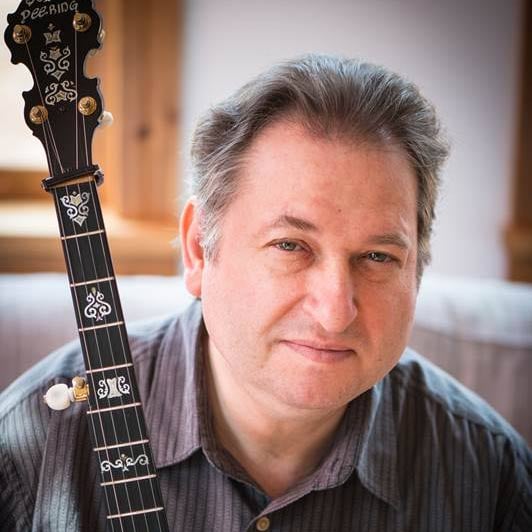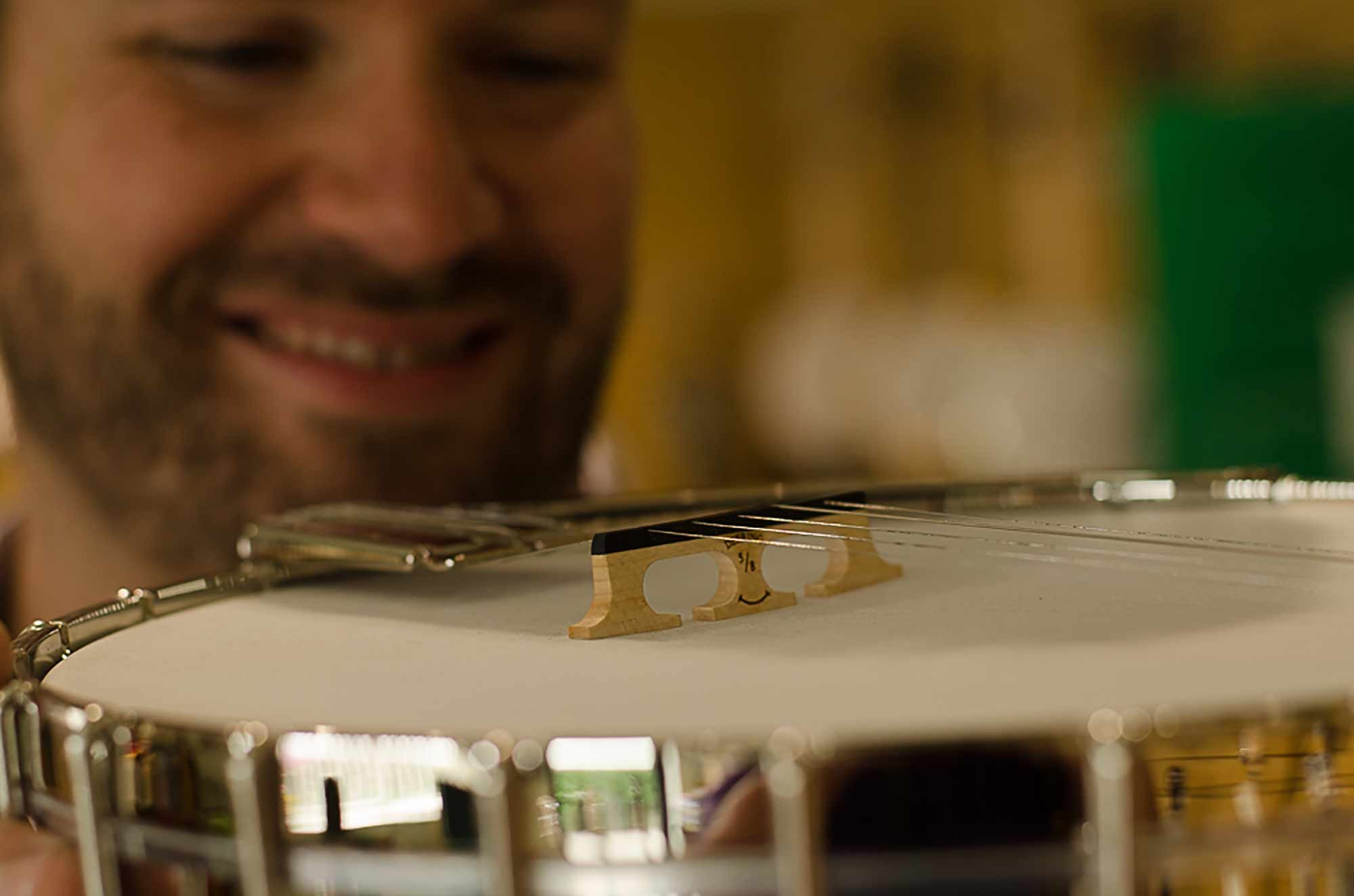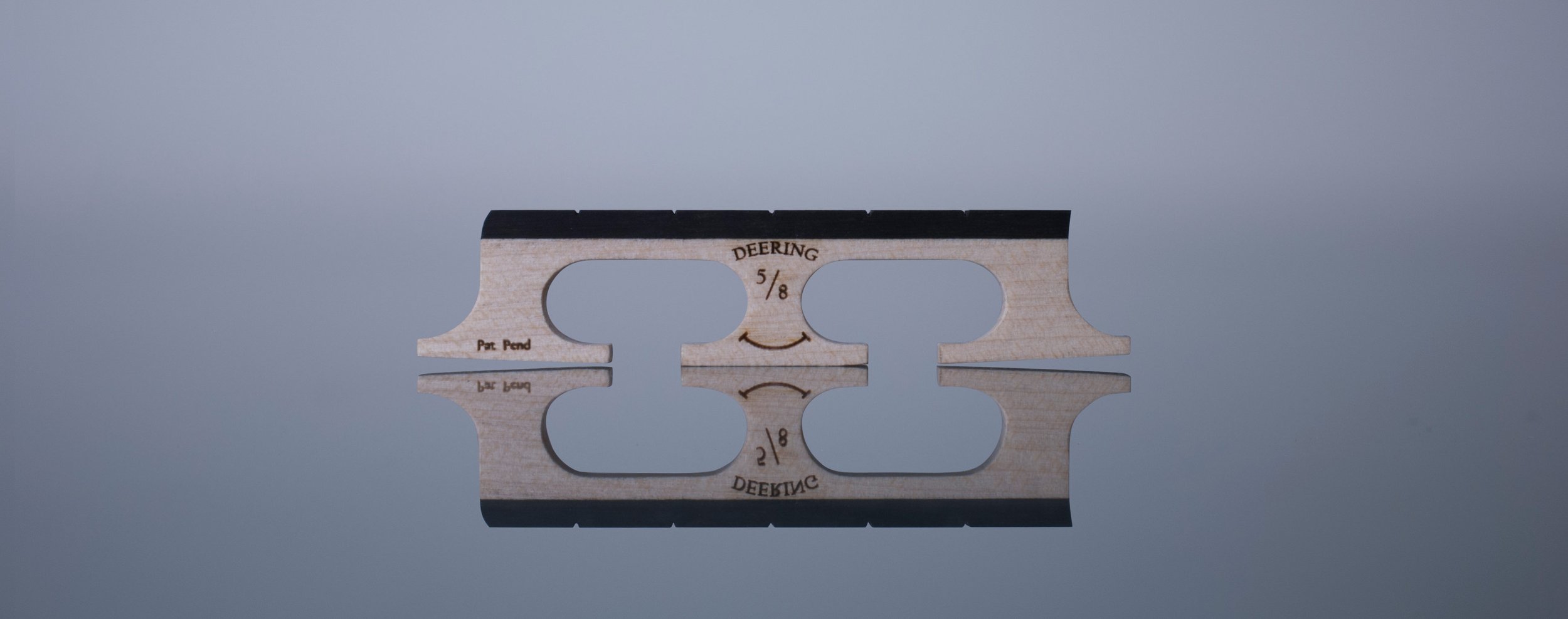Pressure from the strings onto the banjo bridge creates an indentation in the head. This pressure compresses the bridge into a natural curve creating a stress within the bridge, limiting its ability to vibrate freely and thus inhibiting the tone.
So why is the bottom of a banjo bridge flat?
Deering’s new patent-pending Smile Banjo Bridge is created to fit into the natural curve created on a banjo head when under string tension. This relieves the stress found in a traditional banjo bridge allowing the Smile Bridge to vibrate without constriction. The result is an instantly fuller and more expressive midrange, less constricted low end frequencies, and a wonderful balance across all strings.
Put a Smile™ On Your Banjo
This exciting advancement in banjo development is the easiest change you can make to your banjo to instantly enhance the tone.
- Enhanced Midrange Frequencies
- Less Constricted Low End Frequencies
- Beautiful Balance From String To String
Currently available for 5-String banjos with a 5/8" or 11/16" bridge height. Available in flat (standard) or radiused top.
More styles to follow shortly.
The Smile™ bridge totally transformed the sound of my already wonderful sounding Golden Clipper. The tone was richer, fuller, louder (in a good way), with a touch of pre-war sizzle. I continue to be wowed!
Tony Trischka Banjo Virtuoso
[fa icon="quote-right"]
There is no more pressure in the bridge so it is already like a played in bridge.... It really works and it sounds fantastic.
Jens Kruger Kruger Brothers
[fa icon="quote-right"]
I have never heard such a drastic positive change in tone and volume with a new bridge on any of my banjos. It sounds fabulous on my 1935 Kel Kroyden.
Greg Cahill The Special Consensus
[fa icon="quote-right"]




